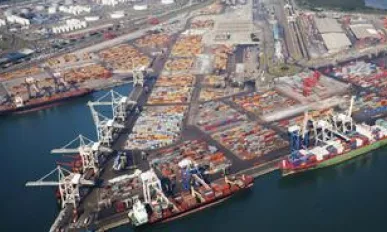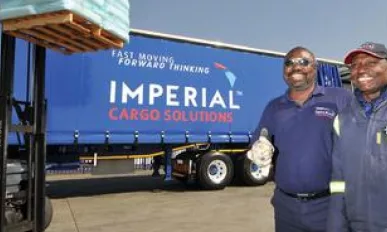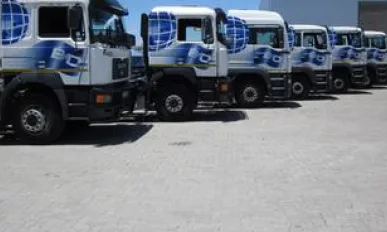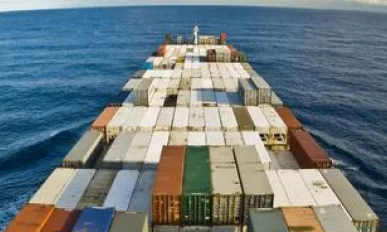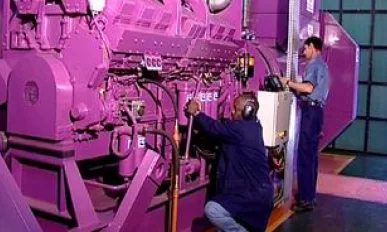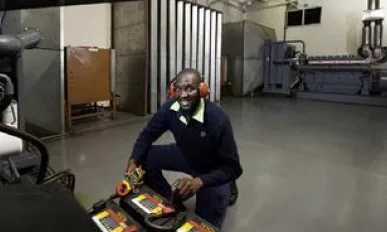Paccon Logistics : Proudly South African
Paccon Logistics is a multi-disciplinary freight management company operating from Durban in South Africa.
Imperial Logistics : Targeting African Growth
Imperial Logistics has been reinvented and is targeting African growth. Chief Integration Office Cobus Rossouw talks to Ian Armitage.
Berry & Donaldson : Half a Century of Logistics
Berry & Donaldson is one of South Africa’s largest private forwarding and clearing agents.
Air Uganda : The Wings of East Africa
Meridiana Africa Airlines Limited, trading as Air Uganda, is a privately owned airline founded in 2007 in Uganda.
Elite Clearing & Forwarding : A Clear Winner
Elite Clearing & Forwarding (Pty) Ltd is an expert international shipping company offering comprehensive logistics & freight solutions.
Total Facilities Management Company : Winning Partnerships
Total Facilities Management Company (TFMC) is the largest facilities management company in South Africa, providing integrated facilities management that minimises costs “through forward looking performance-based risk and maintenance strategies”. We talk to managing executive Cornelius Van Der Merwe.
Tsebo Outsourcing Group : Food for Thought
Tsebo Outsourcing Group offers market-leading services in outsourced catering solutions, contract cleaning and hygiene solutions. We talk to Dr Chris Jardine, the man who heads up its Catering arm.
Ethiopian Airlines : Living the Dream
Ethiopian Airlines recently announced it made a record profit. The company’s chief executive officer, Tewolde Gebremariam, credited the profitability to the use of new, modern and fuel-efficient jetliners such as the Boeing B787 Dreamliner and B777, and his “exceptionally dedicated employees”.
Afroteq FM Solutions : Specialist in the Built Environment
We talk to Lydia Hendricks, Director of Afroteq FM Solutions, about specialising in full turnkey management solutions and the importance of Facilities Management services in South Africa.
Drake & Scull : Best in FM
Facilities management is the cornerstone of operations of Drake & Scull, a Tsebo Outsourcing Group company with aspirations to conquer Africa. CEO John Wentzel tells us more about the challenges facing the FM industry.



